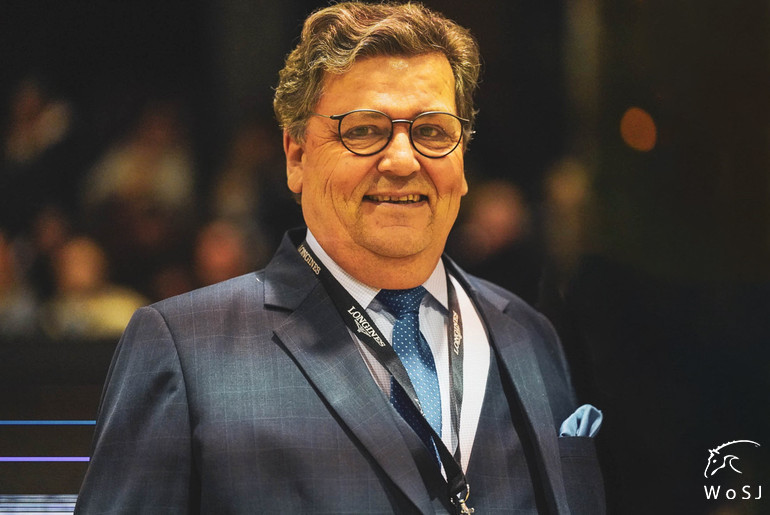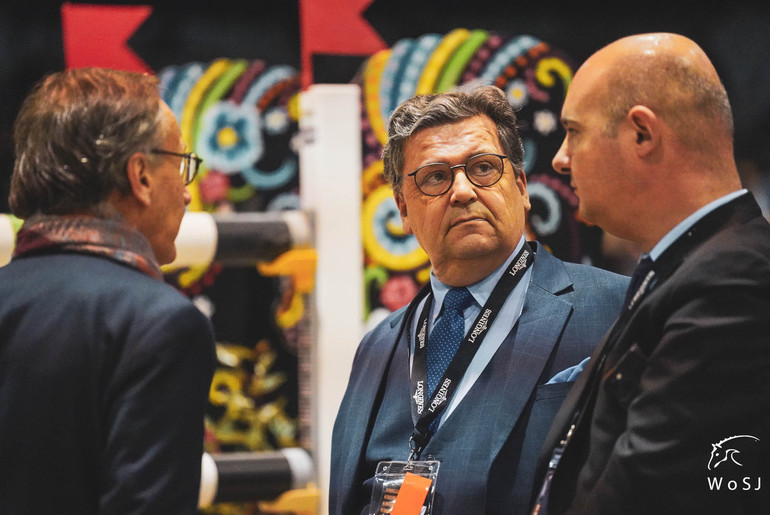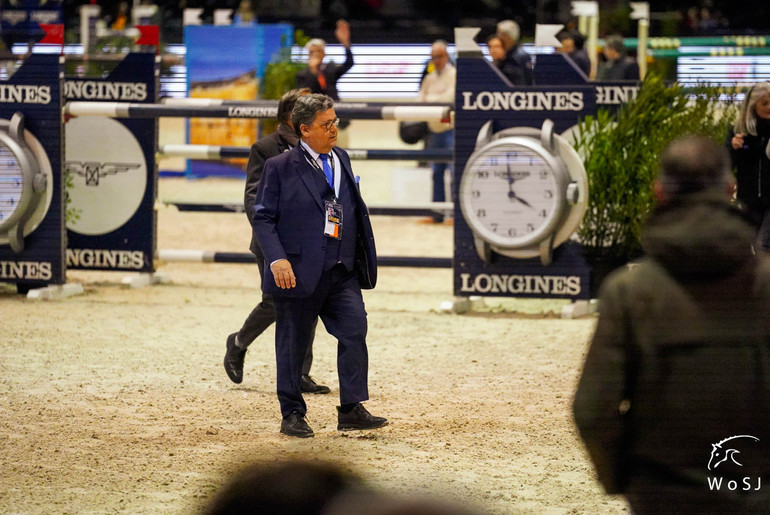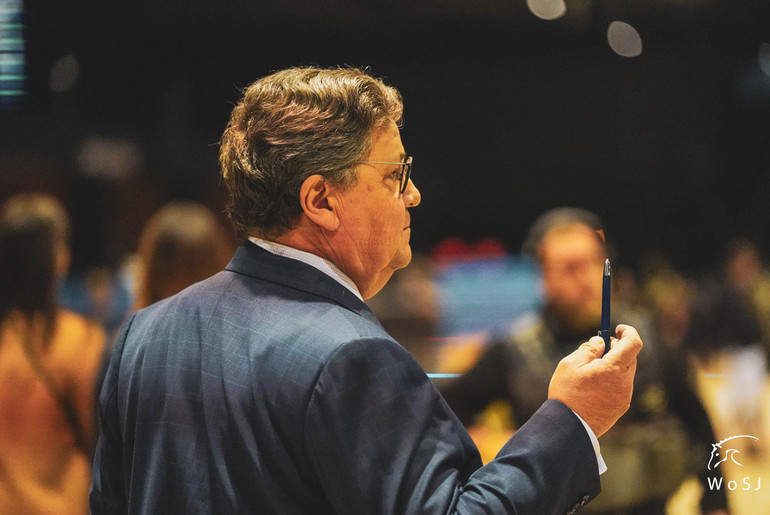Text © World of Showjumping
“We have to accept that we can never win a battle against the public opinion,” Carsten Sørlie, a FEI Level 4 jumping judge, tells World of Showjumping. “I have an idea of a definition when it comes to horse welfare, but sadly it is not very valuable as long as we have a vast public opinion – people who often do not know anything about horses, but nevertheless have an opinion about their welfare.”
"I think the social license to operate is paramount when it comes to the survival of equestrian sports,” Sørlie says. “What we can do as a community, is to educate as much as possible. We have to be open about how we deal with our horses, and show what horses have given and continue to give to humans, as well as to the society. We have to accept that all we can do is educate and prevent, as well as share what we define as good horse welfare. We have to showcase the positive side of our sport. Those who don’t live up to our standards have to deal with the negative media attention they are going to get, as well as strict sanctions.”
Giving back to the sport
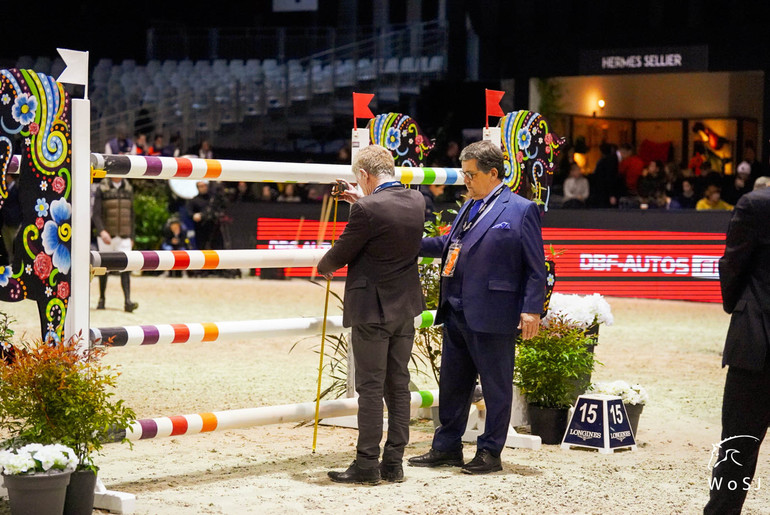
Carsten Sørlie did his first international championship in 2011, as a member of the ground jury at the European Championships in Madrid. Since then, Sørlie has taken part at several more Europeans, as well as at the World Championships in Herning and the Tokyo Olympics. Photo © Nanna Nieminen for World of Showjumping.
Working as a FEI Level 4 judge at some of the biggest shows in the world has been Sørlie’s hobby since he stopped riding. “I rode at a decent level until 1983, and then I worked with young horses until 1999,” the 65-year-old tells about his background. “In the beginning it was a way to stay in touch with the environment I had been in as a rider. It was purely coincidental that I came into judging, because I started as a commentator. As I had too many opinions about judging, I was more or less forced to take a judging course. Now, it is still about being a part of the community, giving back to a sport I love. I think our life with horses is a privilege, and a good school of life. We see that some of the best leaders come from the equestrian world, and I think that speaks volumes compared to any other sport. I don’t believe in reincarnation, but if I could choose what I would be in my next life, I would want to be a top sport horse, with a good rider and a good groom – then I could be sure to really have a good life.”
As president of the ground jury, you have total responsibility, and you must make sure the team works well together
Sørlie did his first international championship in 2011, as a member of the ground jury at the European Championships in Madrid. Since then, Sørlie has taken part at several more Europeans, as well as at the World Championships in Herning and the Tokyo Olympics. In Tokyo, Sørlie was supposed to be a ground jury member, but as his good friend and dear colleague Jon Doney sadly passed away prior to the Games, Sørlie was later appointed as president of the ground jury. “As president of the ground jury, you have total responsibility, and you must make sure the team works well together. You are responsible for the connection between the groups of officials, the organising committee and also the FEI. Being the president is more like being a general manager, while when you are a member of the ground jury, you take part in the decisions and share your opinion when you are asked. As a president of the ground jury, you have a wider responsibility, ” Sørlie says.
Creating a level playing field
“For me, it is all about being helpful when you are needed, firm when that is necessary, and trying to create a level playing field for everyone – because that is what our job is about,” Sørlie continues to speak about the role as a judge. “It is a little bit like running a business,” he points out. “The leadership part – especially as president of the ground jury – is important, because you have to get everything running as smoothly as possible. You should have a coaching approach; you are not there to compete with anyone, you are there to make sure everything runs according to the rules and fair play. It is not about being as likeable as possible; you cannot want everyone to like you, because it is impossible to please everyone.”
You should have a coaching approach; you are not there to compete with anyone, you are there to make sure everything runs according to the rules and fair play
“I think that, at the moment, when it comes to the officials, the FEI is on a good path: They use a lot of effort in creating good education and I also support the fact that they demand some language skills, because we have to have a common base for communication,” Sørlie says. “What we need to keep in mind, however, is that our sport is not only a sport, it is also an industry – and we as officials have to balance these different aspects.”
Even experienced judges can make mistakes
In December 2022, an addition to the FEI Jumping Rules article 241 concerning eliminations was at the centre of discussions at the International Jumping Riders Club’s (IJRC) General Assembly in Geneva, where concerns were raised about judges having too much power while not being educated enough. “The rule will demand a lot from the judges, and I think it is a good idea to organise the jury in a way that these decisions are taken by the president of the ground jury as he or she hopefully will be the most experienced one,” Sørlie says. “And if the president is not the most experienced, then he or she has to assign someone else in the jury who has the experience to take these decisions. It has to be organised in a way to minimize the risk for wrong decisions – however, even experienced judges can make mistakes.”
“I am not sure this rule change will impose more eliminations than in the past. The biggest difference is the wording clarified in the Jumping Rules; the former rules were connected to the fitness of the horse and now it is specifically stated that you can act during the round,” Sørlie explains about the difference the rule change is going to make.
It has to be organised in a way to minimize the risk for wrong decisions – however, even experienced judges can make mistakes
“In addition to the previous rule, there was also points in the Veterinary Regulations about horses in distress. The definition of distress can be a little difficult to define, whereas now we have to consider the term ‘contrary to the principles of horse welfare’ and it is clearly stated that we can eliminate. I have seen cases where horses go through with 28 faults, but we don’t have a rule to eliminate after a certain number of penalties and, in my opinion, we should not put up a number on it either. There are so many ways to knock down a fence; if you crash, it can be a horse welfare issue; if you have a light touch, it might not be.”
“We don’t have many cases where the FEI has sanctioned an official, but it has happened,” Sørlie explains about the accountability for officials – another point of concern raised at the IJRC General Assembly last year. “First of all, as an official, it does not matter on what level you are working at, but you have to deliver. And if you don’t deliver, you either don’t get appointed or invited again, because it is quite visible if you perform or not. There are skilled people who consider our performances. I know there are probably thousands of people out there saying that the jury in Tokyo did not do their job, but I also know that those who are familiar with the job and with the rules have another opinion because you have to perform out of the framework you work within. Under the rules we had in place at the time, it might have been difficult to do anything else – especially legally. And had we done anything differently, there would easily have been a legal case to follow.”
Use your power with common sense
“Many years ago, we had a judge who said that if you make a rule for everything, you don’t need judges, you could send your mother-in-law – because then you have everything regulated,” Sørlie says when asked if the sport is turning towards over-regulating and losing touch with horsemanship as well as common sense.
In my opinion most riders appreciate the role of a good judge; they see that a good judge delivers an equal playing field, a sort of fairness to everyone
“The judges are there to interpret the spirit of the sport. On the other hand, the danger is that you open up for legal discussion afterwards if you don’t regulate enough. We must keep in mind that this is not only a sport, but also a business and there is often a lot of money involved,” Sørlie points out. “It is about a delicate balance, and I think that up to now, the FEI has been able to balance it all well. If I could wish for anything, it would be to have something similar internationally to what we have in the Nordic countries: You cannot bring a sport decision to court, because the governance is always inside the sport itself. It is a personal wish, as I fully understand it can’t be – we are a huge industry as well, and an industry is regulated in different way than a sport is. I am not sure I want to see a lot of change, because in my opinion most riders appreciate the role of a good judge; they see that a good judge delivers an equal playing field, a sort of fairness to everyone. I believe that most riders do appreciate our work and want that the judges have power – as long as they use their power with common sense.”
“Another discussion we always should have; is whether or not we as officials are working in an optimal way? I don’t have a straight forward answer to that. My opinion is that juries normally do a good job; they do it out of the best interest for the sport,” Sørlie says. “I am happy to see, in order to create better working conditions, that IOC has accepted to have an additional judge at the next Olympics. Furthermore, in the future, we can probably use technology in a more advanced way – we have to develop as a sport in that regard. In football, they have four judges watching slow motion videos with a direct connection to a referee on the field – helping. We have to develop our sport with the best interest in mind. However, the equestrian community has to accept that sometimes, what is in the best interest of the sport is not always what the riders want – and we have to get our good stories and positive pictures in the media. We have to take into consideration the society and the transparent world we are a part of.”
28.3.2023 No reproduction of any of the content in this article will be accepted without a written permission, all rights reserved © World of Showjumping.com. If copyright violations occur, a penalty fee will apply.



